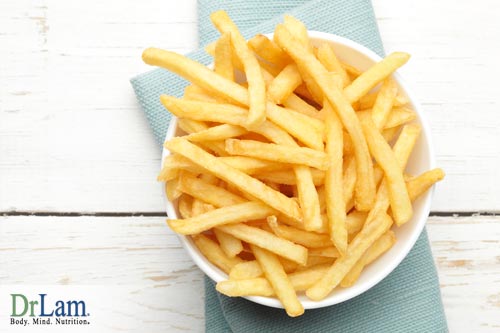The egg's image as a wholesome food rich in egg benefits has been tarnished in recent years, ever since a link was established between high blood cholesterol level and high incidence of cardiovascular disease. Egg is a rich source of dietary cholesterol and it is labeled as a "bad food". Many have resorted to eating just the egg white to avoid the implications of heart disease, while others have rejected the intake of eggs altogether as a prescription to well being.
Contrary to popular belief that the egg is something to avoid, numerous research and long term studies have shown that eggs are a great dietary source of many fundamental (e.g. protein, choline, cholesterol) and non-fundamental (e.g. lutein, zeaxanthin) components that are essential for optimal health. In fact, many in the forefront of anti-aging research believe that moderate egg consumption of one per day should be an integral part of a complete anti-aging diet.
| Nutrient (unit) | Whole Egg | Egg White | Egg Yolk |
|---|---|---|---|
| Calories (kcal) | 75 | 17 | 59 |
| Protein (g) | 6.25 | 3.52 | 2.78 |
| Total lipid (g) | 5.01 | 0 | 5.12 |
| Total carbohydrate (g) | 0.6 | 0.3 | 0 .3 |
| Fatty acids (g) | 4.33 | 0 | 4.33 |
| Saturated fat (g) | 1.55 | 0 | 1.55 |
| Monounsaturated fat (g) | 1.91 | 0 | 1.91 |
| Polyunsaturated fat (g) | 0.68 | 0 | 0.68 |
| Cholesterol (mg) | 213 | 0 | 213 |
| Thiamin (mg) | 0.031 | 0.002 | 0.028 |
| Riboflavin (mg) | 0.254 | 0.151 | 0.103 |
| Niacin (mg) | 0.036 | 0.031 | 0.005 |
| Vitamin B6 (mg) | 0.070 | 0.001 | 0.0069 |
| Folate (mcg) | 23.5 | 1.0 | 22.5 |
| Vitamin B12 (mcg) | 0.50 | 0.07 | 0.43 |
| Vitamin A (IU) | 317.5 | 0 | 317 |
| Vitamin E (mg) | 0.70 | 0 | 0.70 |
| Vitamin D (IU) | 24.5 | 0 | 24.5 |
| Choline (mg) | 215.1 | 0.42 | 214.6 |
| Biotin (mcg) | 9.98 | 2.34 | 7.58 |
| Calcium, Ca (mg) | 25 | 2 | 23 |
| Iron, Fe (mg) | 0.72 | 0.01 | 0.59 |
| Magnesium, Mg (mg) | 5 | 4 | 1 |
| Copper, Cu (mg) | 0.007 | 0.002 | 0.004 |
| Iodine, I (mg) | 0.024 | 0.001 | 0.022 |
| Zinc, Zn (mg) | 0.55 | 0 | 0.52 |
| Sodium, Na (mg) | 63 | 55 | 7 |
| Manganese, Mn (mg) | 0.012 | 0.001 | 0.012 |
It is clear that egg benefits contribute an excellent source of calories (75 calories), cholesterol (213 mg), protein (6.25 gm), and a variety of important nutrients for the body.
 One egg provides about 75 calories. Based on an average American diet of 2,000 calories per day, egg benefits from a single egg will provide 3% of the daily energy's need. The calories provided by the egg are packed with a variety of important macro and micronutrients. This is in contrast to the empty calories commonly found in snacks such as cookies or pastries that are made primarily from refined sugar. In other words, these calories from egg benefits are good calories dense in nutrients.
One egg provides about 75 calories. Based on an average American diet of 2,000 calories per day, egg benefits from a single egg will provide 3% of the daily energy's need. The calories provided by the egg are packed with a variety of important macro and micronutrients. This is in contrast to the empty calories commonly found in snacks such as cookies or pastries that are made primarily from refined sugar. In other words, these calories from egg benefits are good calories dense in nutrients.
On average, sedentary people require 0.8 grams of protein per 1 kg of body weight. This works out to about 56 grams of protein a day for a 70 kg (150 pound) person. Those who are physically active or those with greater protein need, such as children, dieters, and the elderly, require more at 1.2 to 1.5 grams of protein per 1 kg of body weight.
A single egg benefits contributes provides about 6.25 grams of protein, or about 10% of daily protein needs. The protein content of egg benefits comes half from the egg white, while the other half from the egg yolk. In fact, one of the central facts of egg benefits is that its' protein is of such high quality that it is used as the standard by which other proteins are compared. Eggs have a biological value (efficacy with which protein is used for growth) of 93.7%. Comparable values are 84.5% for milk, 76% for fish, and 74.3% for beef.
One of the most notable egg benefits, therefore, is that it is an excellent source of protein and one of the best proteins money can buy.
Carotenoids are substances found in vegetables. They gather in high amounts in the retina and the macular region of the eye. Carotenoids are excellent antioxidantsand protect the eyes from free radical damage originating from ultraviolet rays of the sun. Abaundance of carotenoids called lutein and zeaxanthin (yellow or RED carotenoid, respectively) are noted egg benefits. Studies have shown that a higher dietary intake of these two carotenoids lowers the risk for cataracts by up to 20 percent and age-related macular degeneration by up to 40 percent. Adult macular degeneration is the number one cause of blindness in individuals over 65 years old.
Choline is a fundamental dietary component for all cells to function properly. It is a key component for the structural integrity and signaling functions of the cell membrane. It is also a major source of methyl-groups in the diet. In addition, choline directly influences nerve signaling, cell signaling and lipid transport/metabolism. A scientific review article published in the Oct. 5. 2000 issue of the Journal of the American College of Nutrition reports that the nutrient choline, when taken during pregnancy, may be key in the development of an infant's memory function and may improve memory capability later in life. Eggs benefits contribute great dietary sources of choline, providing about 200 mg per serving.
Betaine, also known as trimethylglycine, is produced by choline and the amino acid glycine in the body. Although both folic acid and betaine ease the remethylation of homocysteine into methionine, they are different in that folate-dependent remethylation occurs in all cells, while betaine-dependent remethylation reaction occurs only in the liver.
Betaine lowers homocysteine levels in the body. Homocysteine is a well known independent risk factor of cardiovascular disease. A high homocysteine level is a sure prescription for coronary artery disease. Despite this, it should be remembered that folic acid is still the most effective agent in lowering plasma homocysteine concentrations.
Eggs have been widely known for their high fat and high cholesterol content, providing about 200 mg of cholesterol per egg. Cholesterol from the egg comes exclusively from the egg yolk.

Ever since the discovery that links high blood cholesterol to an increased incidence of cardiovascular disease, the logical conclusion is that any food high in cholesterol should be avoided since consumption of such dietary cholesterol may lead to an increase in blood cholesterol. The hypothesis that "high dietary cholesterol leads to high blood cholesterol" has become such a standard dietary claim that anyone who wishes to avoid or lower the chances of getting heart diseases has to restrict their intake of eggs. Few people have carefully examined the evidence to this hypothesis.
The majority of studies conducted over the past two decades on eggs and cholesterol have shown that dietary cholesterol only has a weak link, at best, to blood cholesterol levels because there is only a relatively small change in blood cholesterol levels in response to changes in dietary cholesterol intake.
For example, Harvard researchers report in the April 21, 1999, Journal of the American Medical Association that they could find no relationship of moderate egg intake (I per day) with heart disease. Two large prospective studies of 38,000 men and 80,000 women looked at heart attacks and strokes in 8 to 14 years of follow-up after asking about dietary habits. There was no statistically significant difference in risk among people who ate eggs less than once a week compared with those who ate more than one egg a day. The only increase in heart disease risk was seen in diabetics, both men and women. Eighty percent of diabetics are obese. It is thought that the increased risk is linked more to obesity, although the exact mechanism is not known.
Researchers have further established that the average response to a 100 mg/day change in dietary cholesterol intake leads to a 2.5 mg/dl change in blood cholesterol levels. While some individuals are more sensitive to the effects of dietary cholesterol (15-20% of the population), the dose adjusted response factor in this group is still relatively small (3.2 vs. 1.6 for sensitive vs. resistant study subjects). For example, it can be estimated that reducing dietary cholesterol intake from 400 mg/day to 300 mg/day results in a plasma cholesterol reduction of 3.2 mg/dl in cholesterol sensitive individuals and as little as 1.6 mg/dl in cholesterol in sensitive individuals.
In a study by Schnoh et al in 1994, the diet of 24 adults was changed by addition of two eggs per day (400 mg of cholesterol) for six weeks. The researchers found that their total cholesterol levels increased by 4%, while HDL cholesterol levels increased 10%. The dose-adjusted response to the change in dietary cholesterol was 2.4 mg/dl per 100 mg/day. This study showed that moderate egg intake should not be rigorously restricted in healthy individuals.
In another study by Ginsberg et al in 1994, twenty-four young men were fed 30% fat diets with an addition of zero (128 mg cholesterol/day), one (283 mg/day), two (468 mg/day) or four (858 mg/day) eggs per day to the base diet. Each diet lasted eight weeks. The average blood cholesterol levels in the twenty-four subjects were 155, 161, 162, and 166 mg/dl for the zero, one, two and four eggs per day feeding periods. Plasma total cholesterol increased 1.5 mg/dl per 100 mg/day added dietary cholesterol.
Even more important in this particular study was the finding that there was no evidence that changes in dietary cholesterol intakes altered the postprandial plasma lipoprotein profile (lipoproteins thought to be involved in the development of atherosclerosis) and thus did not alter the atherogenic potential of the plasma lipoproteins. The data indicate that in the majority of healthy young men, an addition of two eggs per day to a low-fat diet has little effect on plasma cholesterol levels.
Ginsberg followed up with another study in 1995 with a controlled dietary cholesterol feeding study. This time in young women. The effects of feeding zero, one, or three eggs per day on plasma lipids and lipoproteins were measured. Results showed that the dose adjusted plasma cholesterol response was 2.8 mg/dl per 100 mg/day dietary cholesterol (a value higher than that obtained in males in the 1994 study). In women, however, the increase in total plasma cholesterol with dietary cholesterol occurred in both the atherogenic LDL cholesterol (2.1 mg/dl per 100 mg/day) and the anti atherogenic HDL cholesterol (0.6 mg/dl per 100 mg/day). As found in the previous study in healthy young men, young women have the ability to compensate for an increased intake of cholesterol by adjusting the way cholesterol is handled by the body. The data shows that an addition of two eggs per day to the diet of healthy young women has little effect on plasma cholesterol levels in the majority of study subjects.
In addition to the lack of significant correlation between dietary and blood cholesterol, many studies have shown that dietary cholesterol increases both LDL and HDL cholesterol concurrently, with essentially no change in the important LDL: HDL cholesterol ratio. For example, studies have shown that a change of diet by increasing ingestion of 100 mg cholesterol raises LDL cholesterol by 1.9 mg/dL and HDL cholesterol by 0.4 mg/dL. The LDL:HDL ratio change went from 2.60 to 2.61. Risk for cardiovascular disease remained the same.
 The average American diet derives over 40% of its calories from fat, and the type of fat consumed is usually saturated fat from animal sources such as beef and trans-fat commonly found in fast foods such as French fries. For people on such a "bad fat" diet, consumption of eggs should be reduced and monitored. For healthy individuals who derive only 30 percent of their calories from fat, a moderate intake of one egg a day should not be restricted. The use of dietary intervention as a way to reduce blood cholesterol level should therefore be undertaken with great care to take into consideration the high variability among individuals.
The average American diet derives over 40% of its calories from fat, and the type of fat consumed is usually saturated fat from animal sources such as beef and trans-fat commonly found in fast foods such as French fries. For people on such a "bad fat" diet, consumption of eggs should be reduced and monitored. For healthy individuals who derive only 30 percent of their calories from fat, a moderate intake of one egg a day should not be restricted. The use of dietary intervention as a way to reduce blood cholesterol level should therefore be undertaken with great care to take into consideration the high variability among individuals.
Cholesterol is a much-needed macronutrient in the body. Too low a level is not good, and too high is also not good. Recent studies have linked a low blood cholesterol level of under 150 mg/dl to increased rate of cancer. Optimum cholesterol level in our body should be around 200 mg/dl, with a properly balanced total cholesterol/ HDL cholesterol ratio of lower than 4 to 1.
Dietary cholesterol is, however, associated with a higher risk of gallstones whose primary component is cholesterol, hence the term; cholesterol gallstones. Excess cholesterol that is taken in through the diet will be absorbed into the blood stream. Some of the cholesterol is carried to the gall bladder, one place where it is eliminated.
Dietary cholesterol's link with the occurrence of coronary heart disease or fatality is clearly weak at best. Clearly, the egg is not the demon it has been made out to be at moderate consumption of one per day for the healthy individual.
Like all other animal products, eggs contain no fiber. Dietary fiber helps the body eliminate cholesterol and enhance bowel movement. Ironically, those products that are high in fiber like fruits, vegetables, legumes, and whole grains contain no cholesterol and are low in fat (especially saturated fat).
Egg laying hens are usually raised in factory farm conditions, with administration of various drugs, hormones, and medicines in their feed. Many of these drugs are known to be carried over into the food chain via the egg. Eggs are high in the food chain, therefore the environmental contaminates, which the hen is exposed to, are carried over into the eggs and can weaken egg benefits.
Egg protein is a leading cause of food allergies, along with cow's milk. The majority of the protein is found in the egg whites. Eliminating eggs from the diet is a good screening test in cases of suspected allergies. It is important that any such trial period be at least 21 days long to allow ample time for the allergen to be washed out of the body. Reappearance of the allergy when egg consumption is resumed will serve as confirmatory test of such allergy.
Eggs contain much sulfur, which is a strain on the liver and kidneys. This sulfur tends to make the blood acidic. The body performs best in a slightly alkaline environment. Naturally, the body tries to regain its alkalinity by dispensing alkaline (base) minerals such as calcium and magnesium to buffer the acidity. These two minerals are normally stored in bones, and their mobilization can contribute to mineral losing diseases such as osteoporosis.
Almost all nutrients required for human well-being are included in egg benefits, with the exception of vitamin C. Chickens, like most mammals ranging from dogs to polar bears, have an endogenous ability to make their own vitamin C. Human beings, on the other hand, cannot, and need external supplementation from fruits and vegetables.
Raw eggs are far healthier and provide more egg benefits than cooked ones, especially if the cooked egg is fried in a processed oil high in fat.
The common concern on raw eggs are bacteria infection such as Salmonella, ever since it has been found inside a small number of eggs. Scientists estimate that, on average across the U.S., only 1 of every 20,000 eggs might contain the bacteria. Therefore, the likelihood that an egg might contain Salmonella is extremely small - 0.005% (five one-thousandths of one percent). Statistically, the incidence of salmonella in non-organic eggs is one in 20,000. The chance of infection works out to once every 30 years based on the consumption of a dozen eggs a week.
To protect the public at large, the Center for Disease Control in the United States recommends that eggs not be sunny side up. It is feared that all the bacteria will not be killed during frying. It was once believed that salmonella could only be carried over in cracked egg shells. However, recent research has shown that salmonella can be present when the shell has not been breached or cracked. It is interesting that Salmonella bacteria can live on the cardboard (that contain the eggs) for months. If there's any sign that an egg cracked in the carton, throw the carton out.
Bacteria can sometimes accumulate on the shell. You should discard any eggs with shells - or, for hard-cooked eggs, egg white surfaces - that don't look or feel clean, normally colored, and dry. A slimy feel can indicate bacterial growth and, regardless of color, powdery spots that come off on your hand may indicate mold.
Salmonella can be destroyed by light cooking. Egg white will coagulate (set) between 144 and 149° F, the yolk between 149 and 158, and whole egg between 144 and 158° F. Egg products made of plain whole eggs are pasteurized (heated to destroy bacteria), but not cooked, by bringing them to 140° F and keeping them at that temperature for 3 1/2 minutes. Almost any bacteria is killed when an egg is bought to an internal temperature of 160° F.
The odds are very small that you will get sick from eating raw eggs. If you want to be safer, use pasteurized eggs in any raw-egg food (like Caesar salad dressing, eggnog, homemade ice cream, as well as cake batters and cookie dough that the kids eat). These shell-less eggs are available in many supermarkets in pint and quart cartons. Some companies are also starting to pasteurize eggs in the shell, so check the label on the carton.

Eggs can stay fresh for about three weeks if they are stored in the coldest part of the refrigerator (usually the bottom shelf) in their original carton. Raw egg whites can be stored in a refrigerator safely for up to 4 days and unbroken raw yolks, covered with water, for up to 2 days in a tightly sealed container. Hard boiled yolks can be stored in a tightly sealed container for up to 4 or 5 days as well in a refrigerator.
The faster the egg is consumed, the less chance for spoilage due to bacterial growth. When properly handled and stored, eggs rarely spoil. Instead, the white becomes thinner, the yolk becomes flatter and the yolk membrane weakens as the egg ages. While these changes may affect appearance, they are not indicative of any spoilage and generally do not affect the egg benefits, nutritional quality or its functions in recipes. If eggs are kept long enough, the natural tendency is for them to simply dry up - especially if they're stored in a moisture-robbing, frost-free refrigerator.
There are lots of egg benefits that you need to be aware of if you're concerned about your health. They're nutritionally rich, low in sodium, and contain a wide variety of vitamins and minerals. They also contain just the right mixture of essential amino acids needed to build a strong human body. Best of all, studies have failed to prove a link between egg consumption and heart disease or stroke. If you want eggs to be part of your regular diet, here are some tips for making eggs even better for your health:
For more tips on foods that will improve your health when you have adrenal fatigue, talk to our team by clicking here or give us a call on +1 (626) 571-1234.
